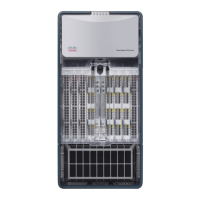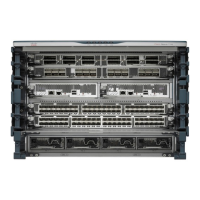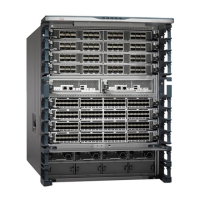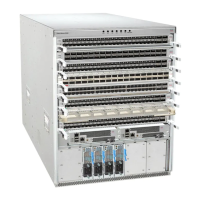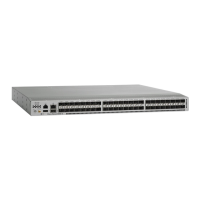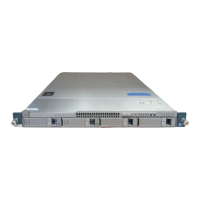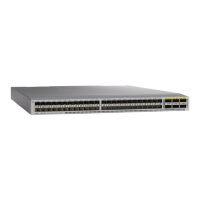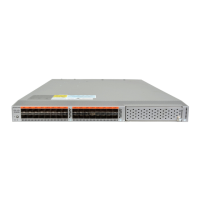Send document comments to nexus7k-docfeedback@cisco.com.
3-2
Cisco Nexus 7000 Series NX-OS Unicast Routing Configuration Guide, Release 4.x
OL-20002-02
Chapter 3 Configuring IPv6
Information About IPv6
• IPv6 Unicast Addresses, page 3-3
• IPv6 Anycast Addresses, page 3-7
• IPv6 Multicast Addresses, page 3-7
• IPv4 Packet Header, page 3-9
• Simplified IPv6 Packet Header, page 3-9
• DNS for IPv6, page 3-12
• Path MTU Discovery for IPv6, page 3-12
• CDP IPv6 Address Support, page 3-12
• ICMP for IPv6, page 3-12
• IPv6 Neighbor Discovery, page 3-13
• IPv6 Neighbor Solicitation Message, page 3-13
• IPv6 Router Advertisement Message, page 3-15
• IPv6 Neighbor Redirect Message, page 3-16
• Virtualization Support, page 3-17
IPv6 Address Formats
An IPv6 address has 128 bits or 16 bytes. The address is divided into eight, 16-bit hexadecimal blocks
separated by colons (:) in the format: x:x:x:x:x:x:x:x. Two examples of IPv6 addresses are as follows:
2001:0DB8:7654:3210:FEDC:BA98:7654:3210
2001:0DB8:0:0:8:800:200C:417A
IPv6 addresses contain consecutive zeros within the address. You can use two colons (::) at the
beginning, middle, or end of an IPv6 address to replace the consecutive zeros. Table 3-1 shows a list of
compressed IPv6 address formats.
Note You can use two colons (::) only once in an IPv6 address to replace the longest string of consecutive
zeros within the address.
You can use a double colon as part of the IPv6 address when consecutive 16-bit values are denoted as
zero. You can configure multiple IPv6 addresses per interface but only one link-local address.
The hexadecimal letters in IPv6 addresses are not case sensitive.
Table 3-1 Compressed IPv6 Address Formats
IPv6 Address Type Preferred Format Compressed Format
Unicast 2001:0:0:0:0DB8:800:200C:417A 2001::0DB8:800:200C:417A
Multicast FF01:0:0:0:0:0:0:101 FF01::101
Loopback 0:0:0:0:0:0:0:0:1 ::1
Unspecified 0:0:0:0:0:0:0:0:0 ::
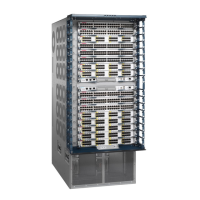
